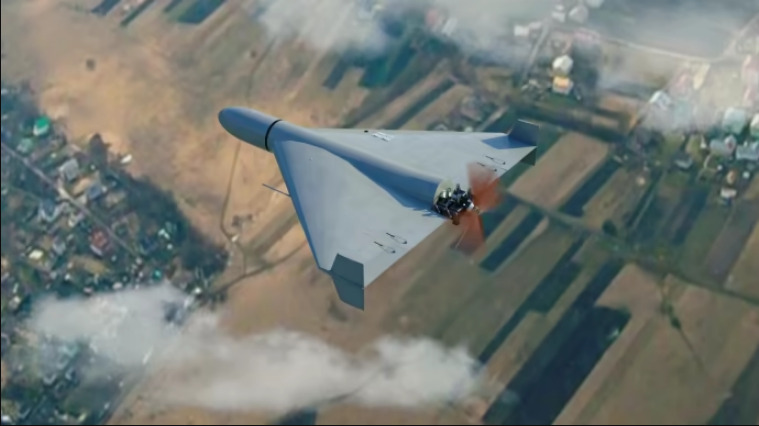Investigations
Shock of Kenyan Girls Lured into Drone Manufacturing in Russia
More alarmingly, over 400 Kenyan women had applied for passports to leave the country to join the Alabuga Start programme.

Kenyan women are among hundreds of African nationals who have been deceived into working at Russian drone manufacturing facilities that supply weapons for the ongoing Ukraine war, according to a disturbing new investigation.
The Geneva-based Global Initiative Against Transnational Organised Crime (GI-TOC) has revealed that young women aged 18-22, primarily from African nations including Kenya, Tanzania, Uganda, South Sudan, Rwanda, Nigeria, South Africa, and Ghana, were recruited under false pretenses to work at the Alabuga Special Economic Zone in Russia’s Tatarstan region.
“The women had not been told they would be working in weapons production before they arrived at the site. Some were led to believe they would be enrolling on a work-study programme,” the GI-TOC report states.
“They described long hours under constant surveillance and health issues caused by working with caustic chemicals.”
According to the investigation titled “Who Is Making Russia’s Drones?“, these women were promised lucrative positions in fields such as hospitality but instead found themselves manufacturing military drones used in Russia’s offensive against Ukraine.
The report indicates that as of December 2024, at least 14 Kenyans were working at Alabuga, with two having returned home.
More alarmingly, over 400 Kenyan women had applied for passports to leave the country to join the Alabuga Start programme.
Workers face numerous violations including wages significantly below the promised $700 (approximately Sh91,000) monthly salary, excessive deductions for accommodation, restricted movement, and occupational hazards from handling chemicals that have caused skin injuries.
When contacted for comment, Kenya’s Labour and Social Protection Cabinet Secretary Dr. Alfred Mutua confirmed that “Alabuga was never registered in Kenya and neither is the government aware of its activities in the country.”
However, he declined to elaborate further, stating, “As a country, we are not going to allow ourselves to be dragged into a war that does not concern us.”
The situation is particularly perilous as Ukrainian forces have targeted the Alabuga facility multiple times in attempts to disrupt Russia’s drone supply chain.
In April 2024, Ukrainian drones struck a dormitory housing African workers, resulting in injuries. Days later, Ukrainian intelligence reported a “mysterious” fire at a warehouse storing drone parts, followed by another drone strike on April 23, 2025.
The GI-TOC report suggests these recruitment practices may constitute human trafficking under the UN Convention Against Transnational Organized Crime, which defines trafficking as recruiting or transporting someone through coercion or deception for exploitation.
“Alabuga clearly engages in some level of deception about the nature of the work it offers to its recruits,” the report states, describing the operation as “reminiscent of human trafficking.”
Despite the serious allegations, the recruitment effort appears to be expanding.
The program has grown from focusing primarily on African nations to targeting potential workers across 84 countries worldwide.
Meanwhile, Kenyan and Tanzanian officials have reportedly held discussions with Russian authorities about creating bilateral labor agreements similar to one established with Uganda.
This case highlights the darker side of Kenya’s aggressive labor export strategy, which government officials claimed had secured 200,000 foreign job opportunities for citizens since June 2024 as part of a plan to create one million jobs annually.
For now, the fate of these workers remains uncertain as they continue producing drones that are reportedly used “almost daily” in Russian attacks on Ukraine—unwittingly drawn into an international conflict without their informed consent.
Kenya Insights allows guest blogging, if you want to be published on Kenya’s most authoritative and accurate blog, have an expose, news TIPS, story angles, human interest stories, drop us an email on [email protected] or via Telegram
-

 Grapevine6 days ago
Grapevine6 days agoAlleged Male Lover Claims His Life Is in Danger, Leaks Screenshots and Private Videos Linking SportPesa CEO Ronald Karauri
-

 Lifestyle1 week ago
Lifestyle1 week agoThe General’s Fall: From Barracks To Bankruptcy As Illness Ravages Karangi’s Memory And Empire
-

 Grapevine2 days ago
Grapevine2 days agoRussian Man’s Secret Sex Recordings Ignite Fury as Questions Mount Over Consent and Easy Pick-Ups in Nairobi
-

 Investigations2 weeks ago
Investigations2 weeks agoEpstein Files: Sultan bin Sulayem Bragged on His Closeness to President Uhuru Then His Firm DP World Controversially Won Port Construction in Kenya, Tanzania
-

 News2 weeks ago
News2 weeks agoAUDIT EXPOSES INEQUALITY IN STAREHE SCHOOLS: PARENTS BLED DRY AS FEES HIT Sh300,000 AGAINST Sh67,244 CAP
-

 Business2 weeks ago
Business2 weeks agoKRA Can Now Tax Unexplained Bank Deposits
-

 Investigations1 week ago
Investigations1 week agoEpstein’s Girlfriend Ghislaine Maxwell Frequently Visited Kenya As Files Reveal Local Secret Links With The Underage Sex Trafficking Ring
-

 News1 week ago
News1 week agoState Agency Exposes Five Top Names Linked To Poor Building Approvals In Nairobi, Recommends Dismissal After City Hall Probe




















